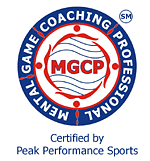The research aimed to determine whether psychological biases, such as placebo (positive expectations) and nocebo (negative expectations) effects, exist based on an instructor’s professional credentials.
Methodology:
The study involved 153 amateur golfers, each with at least one year of playing experience. Participants were divided into three groups, each viewing the same 10-minute golf lesson video. However, each group was told that the instructor held a different certification level:
Tournament Professional (Tour Pro)
Semi-Professional (Semi-Pro)
Aspiring Professional (Amateur)
After watching the video, participants completed a questionnaire assessing their perceptions of the instructor’s expertise, credibility, and their intention to take lessons from the instructor.
Key Findings:
Perception of Instructor Expertise:
Participants rated instructors with higher certification levels as more skilled in performance and teaching abilities.
No significant differences were found in perceptions of the instructor’s personality or emphasis on basic principles across the different certification levels.
Instructor Credibility:
Trust in the instructor increased with higher certification levels.
The Tour Pro was perceived as the most credible, followed by the Semi-Pro, with the Amateur rated the lowest.
Lesson Participation Intention:
Participants expressed a greater willingness to take lessons from instructors with higher certification levels.
Both the Tour Pro and Semi-Pro instructors had significantly higher lesson participation intentions compared to the Amateur instructor.
The study highlights a psychological bias among amateur golfers, where higher certification levels lead to enhanced perceptions of an instructor’s expertise and credibility, subsequently increasing the likelihood of students engaging in lessons. This suggests that certifications can create placebo effects, positively influencing students’ expectations and experiences.
However, it’s essential to recognize that while certifications can enhance perceived credibility, actual teaching effectiveness depends on a combination of knowledge, communication skills, and experience.
Organizations like the Professional Golf Teachers Association of America (PGTAA) are renowned for their comprehensive training programs, producing instructors who excel in both technical proficiency and teaching methodology. The PGTAA’s membership boasts many former PGA and LPGA Tour members. The PGTAA is often regarded as the premier institution for golf teacher certification, emphasizing a holistic approach to developing skilled and credible golf instructors.
In conclusion, while certification levels significantly influence amateur golfers’ perceptions and their willingness to participate in lessons, it’s crucial for instructors to continually develop their practical teaching skills and for students to consider these factors alongside certifications when selecting an instructor.

